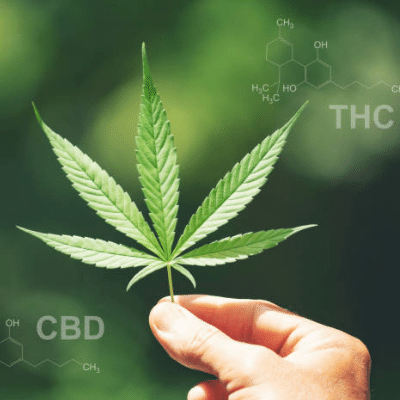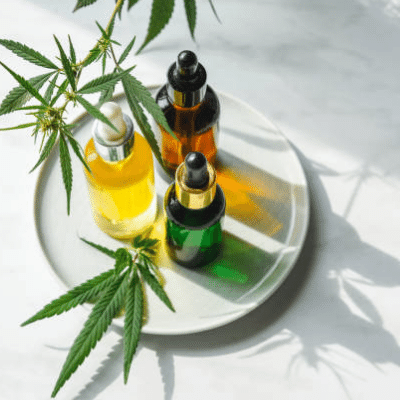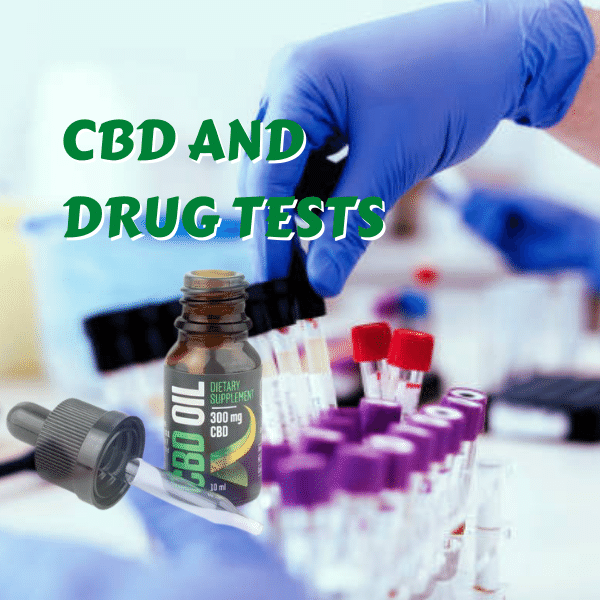Many corporate companies subject their employees to a mandatory drug test, especially at the beginning of employment, with the occasional random drug test throughout the rest of the year. This is done to reduce accidents; monitor productivity and above all protect the company from any type of workplace liability.
The number of CBD (cannabidiol) users in South Africa is rising steadily and we would like to put your mind at ease regarding CBD; THC (tetrahydrocannabinol) and drug tests by breaking down drug tests in the workplace and analyzing if your CBD use could end up giving you a positive result at the next company-wide drug screening.
Why CBD Is Not The Same As Marijuana (CBD vs THC)
Unlike solve for X, something you learnt in high school is finally coming in handy. When it comes to drugs tests, chemistry is everything. And it is the chemistry and biochemistry of CBD that differentiates it from THC. Although CBD and THC are both cannabinoids found in cannabis plants, they have very different amounts of the active ingredient THC and thus elicit different psychological and physiological experiences.
CBD and THC all fall under the same cannabis plant family. Both CBD and THC are found in cannabis plants, however, the concentration of CBD and THC in cannabis plants determines whether the plant is Hemp or Marijuana. Cannabis plants that have a significantly low concentration of THC are known as Hemp and cannabis plants that have a high concentration of THC are referred to as Marijuana.
THC (marijuana) is psychoactive, that is a fancy way of saying it gets you high and alters brain activity. Although this is great, you might not want to heavily alter your brain activity when you need to present that presentation in front of your boss. This is where CBD comes to the rescue. CBD is derived from Hemp which is a cousin to the stronger, psychoactive THC, thus CBD can be used in many ways, from treating chronic illnesses and managing psychological disorders to recreational usage without inducing a false sense of euphoria.
Cannabidiol (CBD) vs. Tetrahydrocannabinol (THC)

- Chemical Structure:
Both CBD and THC have the same molecular structure, the difference lies in how the molecular structure is arranged. The different arrangements elicit different effects on neurotransmitters in the brain. Neurotransmitters are chemicals responsible for relaying messages between cells and affect the brain’s perception of pain, stress, sleep and immune function, just to name a few.
- Psychoactive Effects:
THC induces the brain to produce a sense of euphoria because of how strongly it interacts with pleasure receptors in the brain. CBD fails to interact as strongly with these pleasure receptors and thus doesn’t produce the euphoric feeling associated with THC.
- Drug Testing:
THC and THC metabolites are commonly tested for in standard drug tests while CBD is not, however, there are CBD-sensitive tests available that specifically test for CBD and all of its metabolites. But it is important to remember that CBD is derived from Hemp which does have trace amounts of THC. So it is possible to produce a positive result for THC despite never having used any, this will depend on the minimum threshold of THC for the test.
What Do Drug Tests Usually Screen For?
Drug tests typically test for common drugs such as:
- THC
- Amphetamines
- Methamphetamines
- Benzodiazepines
- Barbiturates
- Cocaine
- PCP
- Opiates
- Methadone
- Nicotine
- Alcohol
Standard drug tests will not be able to detect CBD, even in trace amounts. All of the above-mentioned drugs can be detected by a simple urine test. A commonly used type of urine drug screening is an immunoassay test. It does not measure drug dose; instead, it detects the presence of a drug and its interaction with your immune system. A lot of businesses prefer an immunoassay test as it is the most cost-effective test on the market.
The good thing about an immunoassay test is that the results of an immunoassay test are not given as a number but rather in terms of positive or negative, and many things can produce a false positive with an immunoassay test. Immunoassay tests also have a cutoff point for measurable results, so a negative result will be anything below the cutoff point. Nonetheless, false results are always a possibility, so if you have tested positive for a drug you have never taken make sure to get a follow-up test immediately.
Why Is It Important To Buy CBD Products From Trusted Companies?

As we have already stated, the difference between CBD and THC is not very big. So as a CBD user it is very important to be able to detect the difference between CBD products and THC products, especially if you work in an environment where THC is frowned upon.
How can you make sure that a CBD product does not contain THC
Knowledge is power! When you know where to look and what to look for, you will never unknowingly buy a product you didn’t know contained THC ever again.
- Buy from a trusted company
CBD companies are still very new and in their infancy. You want to trust that the company you are purchasing from, is selling you what they claim to be selling. You need to ask for the following information:
- Updated third party lab reports
- Organically grown
- No chemical pesticides or herbicides
- Locally grown
- Sustainable farming
- THC free
- Check the label
For completely THC-free products, check to see if the label reads “broad-spectrum CBD” or “CBD isolate”. This means that the product has no traces of THC at all and any drug test you undergo should come back negative for THC.
- Review third-party lab reports for THC
A reputable CBD company should have third-party lab reports available. You should never trust a CBD company that can’t prove what they are selling you. Lab reports for CBD isolate and broad-spectrum CBD products should say “ND” which means, non-detectable levels of THC.
For the full-spectrum CBD lab report, make sure that the THC levels do not exceed more than 0.3%. Anything higher than 0.3% is seized to be CBD and is marijuana, which are commonly tested for in drug screenings.
All this information should be readily available to you and relatively easy to find as it is all categorized by batch and type of product. It is a red flag if a CBD company cannot provide you with any of this information.
At the end of the day, it is important to know the drug policy of where you work. If you are in an environment where cannabis is prohibited there are ways to get around it, provided you do your due diligence. Always remember that there are a lot of things in your daily diet that can produce a false positive in any type of drug test, so always ask for a follow-up test if you are unhappy with the test result.






